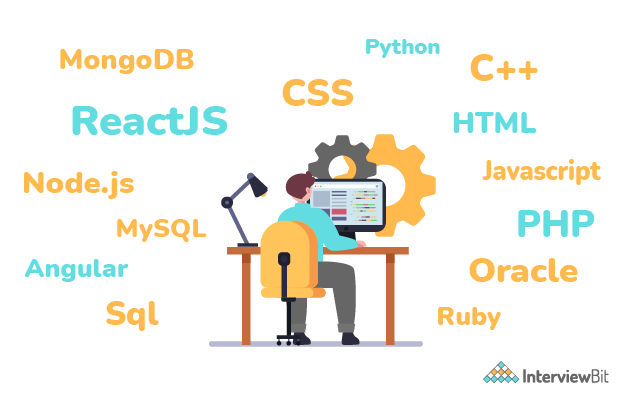Top Skills Every Full Stack Developer Should Have
 khushnuma
khushnuma
In today's tech-driven world, full stack developers are in high demand. These versatile professionals are proficient in both front-end and back-end technologies, making them a crucial part of any development team. If you're aspiring to be a full stack developer or want to know what skills are essential in this role, this article will provide you with a clear and easy-to-understand guide.
1. HTML/CSS
HTML (HyperText Markup Language) and CSS (Cascading Style Sheets) are the building blocks of web development. HTML is used to structure content on the web, while CSS styles and lays out that content.
HTML: Understanding HTML is essential for creating the structure of web pages. You should be comfortable using elements like headings, paragraphs, links, lists, and forms.
CSS: CSS allows you to design and layout web pages. Mastering CSS means you can create visually appealing and responsive designs. Knowing how to use Flexbox and Grid layouts is particularly important for modern web design.
2. JavaScript
JavaScript is the scripting language that makes web pages interactive. It’s crucial for creating dynamic features on websites.
Fundamentals: You need a solid grasp of JavaScript basics like variables, functions, and loops.
DOM Manipulation: Understanding how to manipulate the Document Object Model (DOM) is key to changing the content and structure of web pages dynamically.
Event Handling: JavaScript helps in managing user interactions such as clicks, form submissions, and keyboard inputs.
3. Front-End Frameworks
Front-end frameworks and libraries help streamline and organize your code. Some popular choices include:
React: A library for building user interfaces, React allows you to create reusable components and manage the state of your application efficiently.
Angular: A comprehensive framework developed by Google, Angular provides a complete solution for building web applications, including data binding and dependency injection.
Vue.js: Known for its simplicity and flexibility, Vue.js is a progressive framework for building user interfaces and single-page applications.
4. Back-End Technologies
The back-end is where all the server-side logic happens. It involves interacting with databases, managing user authentication, and handling server requests.
Node.js: This JavaScript runtime allows you to run JavaScript on the server side. With Node.js, you can build scalable network applications.
Express.js: A framework for Node.js, Express simplifies routing and middleware management, making it easier to handle HTTP requests and responses.
Databases: Knowledge of databases is crucial. Full stack developers should be familiar with SQL databases (like MySQL or PostgreSQL) and NoSQL databases (like MongoDB).
5. APIs (Application Programming Interfaces)
APIs allow different software systems to communicate with each other. Full stack developers often work with APIs to connect front-end applications with back-end services.
RESTful APIs: Representational State Transfer (REST) is a popular architectural style for designing networked applications. Understanding RESTful principles and how to make API calls is essential.
GraphQL: An alternative to REST, GraphQL lets you query your data more efficiently. It’s a flexible query language for your APIs.
6. Version Control/Git
Version control systems are crucial for managing changes to your codebase. Git is the most widely used version control system.
Git Basics: You should be comfortable with commands like git init, git commit, git push, and git pull.
Branching and Merging: Learn how to create branches, merge code, and resolve conflicts. These skills are vital for collaborating with other developers and managing different features.
7. Development Tools and Environments
Full stack developers use various tools and environments to streamline their workflow.
Text Editors/IDEs: Familiarity with text editors like VS Code or Sublime Text, or integrated development environments (IDEs) like WebStorm, can enhance your productivity.
Package Managers: Tools like npm (Node Package Manager) or yarn help manage and install libraries and dependencies for your project.
Build Tools: Understanding build tools such as Webpack or Gulp helps in automating tasks like code minification, compilation, and bundling.
8. Soft Skills
Technical skills are crucial, but soft skills are equally important for a successful full stack developer.
Problem-Solving: Full stack developers often face complex problems that require creative and analytical solutions. Being a strong problem-solver will set you apart.
Communication: As a full stack developer, you need to communicate effectively with team members, stakeholders, and sometimes clients. Clear communication ensures that everyone is on the same page and that project goals are met.
Time Management: Balancing multiple tasks and deadlines is a part of the job. Good time management skills help you stay organized and productive.
9. Understanding of Deployment and Hosting
Deploying and hosting web applications is the final step in making your project available to users.
Deployment Platforms: Familiarize yourself with platforms like Heroku, AWS (Amazon Web Services), or Netlify for deploying your applications.
CI/CD: Continuous Integration and Continuous Deployment (CI/CD) pipelines automate the process of testing and deploying code. Understanding these concepts can improve the efficiency of your development workflow.
10. Security Best Practices
Security is a critical aspect of web development. Full stack developers must be aware of best practices to protect applications and user data.
Data Encryption: Learn how to encrypt sensitive data both in transit (using HTTPS) and at rest.
Authentication and Authorization: Implement secure methods for user authentication (e.g., OAuth, JWT) and authorization to control access to different parts of your application.
Conclusion
Becoming a successful full stack developer requires a blend of technical expertise and soft skills. Mastering HTML/CSS, JavaScript, front-end frameworks, back-end technologies, and APIs forms the core of your technical skills. Additionally, proficiency in version control, development tools, deployment processes, and security practices will set you apart.
For those seeking structured learning, a Full Stack Developer Course in Lucknow, Noida, Delhi, and other cities in India can provide valuable guidance and hands-on experience. These courses often cover essential skills and tools, helping you to build a solid foundation and stay current with industry standards. Don’t forget the importance of problem-solving, communication, and time management skills. By developing these abilities alongside your technical skills, you'll be well on your way to excelling in the dynamic and ever-evolving field of full stack development.
Subscribe to my newsletter
Read articles from khushnuma directly inside your inbox. Subscribe to the newsletter, and don't miss out.
Written by

khushnuma
khushnuma
I am a Digital Marketer and SEO Specialist; I enjoy technical and non-technical activity. I enjoy learning something new. My passion and urge to gain new insights into lifestyle,